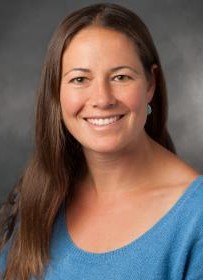Schizophrenia / Psychotic Disorders
(PS3-B48) Faculty Attitudes About Lived Experience Advisory Boards
- SK
Samantha Kirshon, M.S.
Graduate Student
PGSP-Stanford PSY. D. Consortium
PALO ALTO, California - KH
Kate Hardy, Ph.D.
Clinical Professor
Stanford University
Stanford, California - ML
Melanie Lean, Ph.D.
Clinical Assistant Professor
Stanford University
Stanford, California 
Katherine Eisen, Ph.D.
Clinical Assistant Professor
Stanford University School of Medicine
Stanford, California
Author(s)
Co-Author(s)
Lived Experience Advisory Boards strive to establish effective partnerships between patients and healthcare providers by utilizing patient and family perspectives to inform care. These groups, comprised of individuals with lived experience, advise providers on aspects of clinic development, and/or research and help identify the unique barriers to implementing recovery-oriented and person-centered care. Overcoming barriers to effective care is especially important during times of crisis. For example, during the Covid-19 vaccine rollout, board members of a Lived Experience Advisory Board at an academic medical center helped to raise awareness about links between schizophrenia spectrum disorders and Covid-19 risk and advocated successfully for prioritized access to medical care. The potential to improve healthcare outcomes by actively engaging patients and families as true partners in their care has gained traction among practitioners, policy makers, researchers, and academics (Frampton et al., 2017). However, formalizing a patient-centric structure and process across a large health care system can be a daunting activity (Haycock & Wahl, 2013). This study aimed to assess faculty attitudes towards incorporating Lived Experience Advisory Boards into academic medical centers. Forty-one faculty members affiliated with various academic medical settings completed the survey. Familiarity with advisory boards varied among respondents, with some reporting virtually no familiarity and 30 respondents reporting some degree of familiarity. The top two perceived benefits of a Lived Experience Advisory Board were gaining ideas for improving patient education and recognizing blind spots in clinical care. Protecting clinician/staff time and funding concerns were the two most endorsed anticipated challenges to implementing an advisory board. Respondents endorsed brief webinars about the topic and the opportunity to talk to other faculty who have worked with advisory boards as the most helpful resources for developing an advisory board. For clinics with existing advisory councils, respondents endorsed recognition of blind spots in clinical care as the greatest perceived benefit, and difficulty implementing feedback as the greatest challenge; among this group, most respondents believed that clinical care significantly improved. The survey responses indicate that faculty members support the notion of integrating patients and caregivers’ perspectives by using Lived-Experience Advisory Boards and recognize the challenges of integrating this feedback into clinical care. This study provides preliminary support for the development of Lived Experience Advisory Boards in academic medical settings and the broader inclusion of individuals with lived experience in clinical care and decision making.

